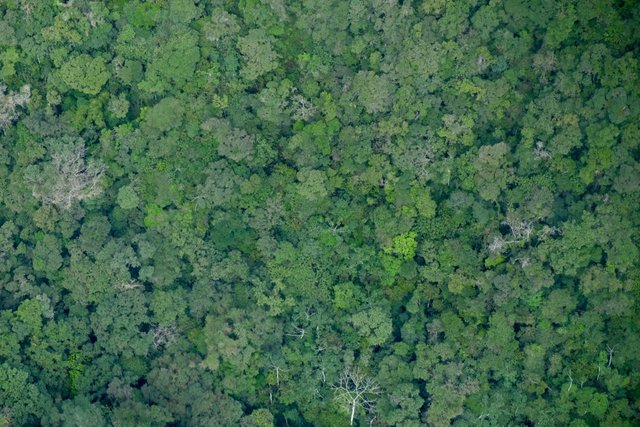Grass-roots won't do. A call for high-tech biodiversity business

Today I was reading an the interesting article of Balakrishna Pisupati 'Romanticizing biodiversity' when I stumbled into the statement of late Nobel Laureate, Wangari Mathai, in the UNEP Governing Council meeting in 2010 “If biodiversity is worth the trillions of dollars in its goods and services and if a small number of countries harbour 70% of world’s biodiversity, why are these countries poor?”
I read ‘Germs, Guns and Steel’ and I know that the answer to such a question is not simple. But being a privileged citizen and a scientist in a complex country like Brazil (the 8th economy in the planet but still outside the knowledge economy), I have to ask if these countries can scape the situation they find themselves at, and find a more sustainable (which means not only environmentally, but also social and economically feasible) way to use their natural resources to scape the situation they are today. Or if they are doomed to be forever third class problem solvers.
“We are in the 21st century, looking for the solutions that will work on the 22nd century, but still with a 20th century mindset” I heard a community leader say last week. I hope he meant that this 20th century mindset won’t help us advance in the knowledge economy. It is wishful thinking to believe that a return to grass-roots-low-tech solutions will help us leap-frog and ‘catch-up' with development. It will not! The world keeps moving, whether we like it or not, and it is not backwards. Nevertheless, the biodiversity business discussion in Brazil is dominated by this ‘underdeveloped state of mind’.
The logging market in the Amazon is about USD 2 Billion a year, while the Brazilian Nuts market is about USD 50 Million a year. The Meat market in the Amazon is about USD 5 Billion a year, while the Açaí berry, the most important harvest exporting product from the region, doesn’t get to USD 500 Million a year. How can we convince a farmer in the Amazon to stop raising cattle to harvest nuts? A cosmetic company pays to traditional populations USD 3 per Kg of perfumed resin that takes, at least, a week to be extracted from the three. Mean while, Bristol-Myers Squibb makes USD 5 Billion a year in revenue with Captopril, a drug they developed based on a peptide found in the venom of the Brazilian lancehead viper (Bothrops jararaca).
This low tech mentality is so deeply rooted in our society, that Brazilian students getting ready to go to the international Genetic Engeneered Machines iGEM competition, a high tech contest in which teams from all over the world are going to present genetically modified microorganisms they produced themselves to solve problems from water pollution to jet fuel production, end up selling cup-cakes to their classmates to raise the sign up fee of $4500. You know how to make a GMO to built jet fuel and you want to raise money selling cup-cakes?! There is something wrong with us.
But how can we expect a society with less than half of the worlds average number of scientists per million inhabitants (450/1M against 1k/1M) and 75% of functional illiterates among the adult population* will think of high tech solutions to their problems?
“Who will appropriate the benefits of the new technologies that threaten our environment?” I heard a second community leader saying in an event discussing the usage of GMO in crops. Lets skip the discussion on the threat of GMO to the environment because there is simply no scientific evidence about that. I’m not sure who will appropriate the benefits, but I’m sure of who will not: those with the hopes that their low-tech solutions will be as valuable as the high-tech of the developed world. The biodiversity is worth trillions but only for those who can develop high tech solutions to the 21st and 22nd century problems.
Dobzhansky said that "We would like to believe that if we were able to securely match data to any scientific problem, then anyone with normal intelligence, who takes the trouble to take note of such data, should necessarily come to the same conclusion about the problem in question. [...] It seems, however, that no scientific evidence is strong enough to force the acceptance of a conclusion that is emotionally unpleasant".
I have serious concerns that 'benefit sharing' will ever work. Typical case in which sharing the fish is not enough: you have to teach how to fish as well! We need 'share benefiting': a way for traditional populations to develop/acquire the tools to compete in this high-tech world and create the wealth they need to preserver their values and traditions themselves. Instead of getting paid $3 per a week of ’sustainable’ work, ask to be taught how to incorporate transgenic in your subsistence crops. Select 10 people to be sent to the university to get a PhD! In practice, patents and high prices cannot prevent you from share benefiting, but lack of education can.
*OECD (2010). Measuring Innovation: A New Perspective, Paris.
**CGEE (2012). Mestres 2012: estudos da demografia da base técnico-científica brasileira.
Hey @mrebelo, great post! I enjoyed your content. Keep up the good work! It's always nice to see good content here on Steemit! Cheers :)
Thank you @exxodus. May you'd also like to read some other things I wrote https://steemit.com/science/@mrebelo/call-for-a-desinstitutionalized-and-distributed-science
More Biodiversity on biotech based innovation: Associated traditional knowledge, Big Data and the Innovation train